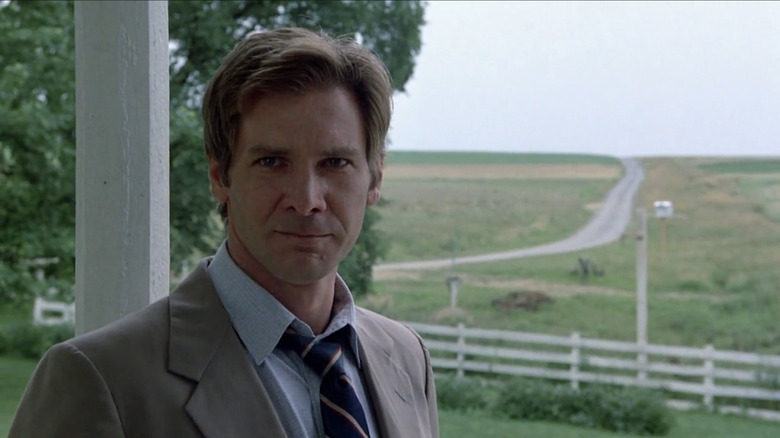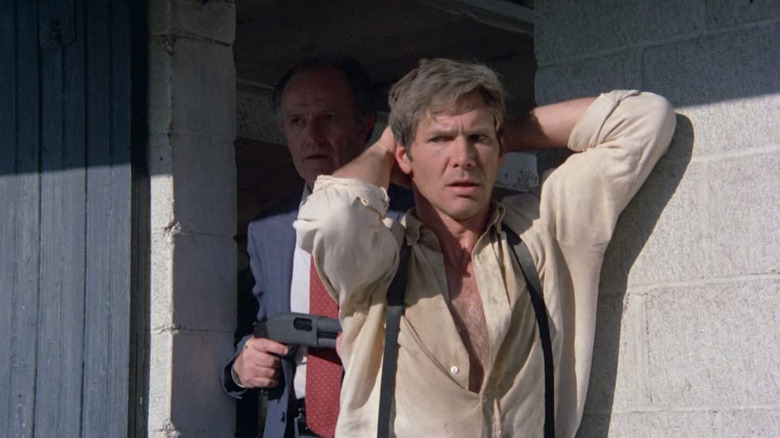Casting Harrison Ford Didn't Make Witness Any Less Of A Risk For Studios
It's probably not hard to argue that "Witness" is pretty close to being an American classic. Combining neo-noir and socio-religious commentary into an unassuming package, it became one of the buzziest movies of 1985. The reception was so positive, in fact, that it ended up getting eight Oscar nominations and a slew of other recognitions.
However, this praise could have never materialized at all, as the process of getting "Witness" greenlit at a studio was an arduous one. At the center of it all was producer Edward S. Feldman, whose recollections of getting the film on the big screen were documented in his autobiography "Tell Me How You Love The Picture." He claimed that, while star Harrison Ford's mainstream popularity was on the rise, studios weren't that keen on casting him as the police detective John Book due to his relative inexperience in headlining non-action fare.
"You can't ask [people before the release of 'Witness'] whether they want to see Harrison Ford as a tough but sensitive cop when they know and love him as Han Solo," wrote Feldman. But the positioning of Ford as a potential acting superstar wasn't the only thing holding "Witness" back from its eventual green light. A couple of different factors about the film made it a tough sell at the time before Paramount finally got it off the ground, including the film's plot-specific setting.
Among them English
"Witness" was expected to be the first American film directed by Peter Weir, who had made a small splash internationally with 1975's "Picnic at Hanging Rock." While studios were confident in his directing abilities, they were less confident in how he had never directed outside of his native Australia before. Because of that, the risk of people not wanting to see a movie by a relatively unknown director was high.
However, perhaps the most important explanation as to why studios were hesitant to pick up "Witness" initially was its setting. As you might recall, "Witness" is primarily set in an Amish community outside of Lancaster, Pennsylvania, which eventually becomes crucial to its main conflict. According to Edward S. Feldman, studio executives expressed reluctance to this plot detail, even after the script was rewritten by Earl W. Wallace and William Kelley to tone down the Amish history. In his autobiography, the producer recalled what 20th Century Fox executive Joe Wizan told him as he rejected the new pitch.
"This is when I heard those immortal words, 'Ed, we don't do rural movies,'" wrote Feldman. "Wizan didn't believe that movies about rural communities make money."
However, after several failed attempts to get it greenlit, "Witness" finally found a home at Paramount Pictures. Needless to say, it proved Wizan's original hypothesis wrong — this rural and controversial film grossed over $116 million dollars worldwide on a budget of $12 million. Well, you know what they say about hindsight — it's usually 20/20.

